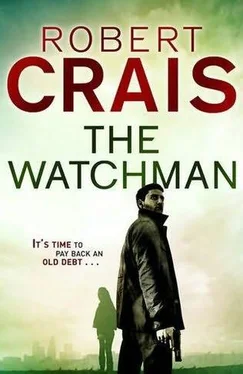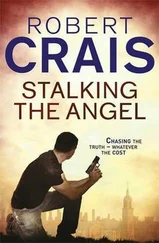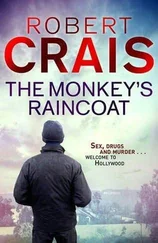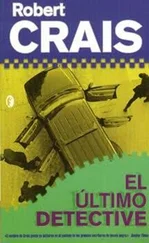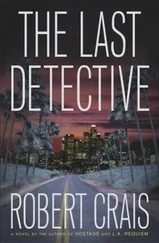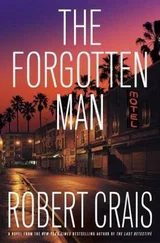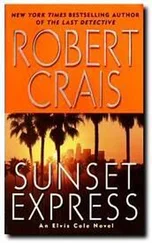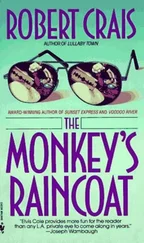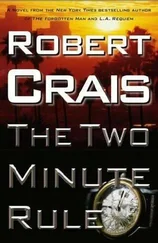“He opened a can of whup ass, fool!”
Two of the cousins laughed, but not the oldest, who told them it was late and they should go inside.
The oldest cousin waited until the others were gone, then turned back to Pike with sympathy in his eyes.
He said, “I am sorry you suffer this, my friend. You must love her very much.”
Pike left the oldest cousin there in the blue light and returned to the house. Larkin was still sleeping. He brought the spread from her bedroom, covered her, then went to the kitchen for a bottle of water. He drank it. He took the carton of leftover jalfrezi from the fridge, but did not eat much. Pike resumed cleaning the pistol. He enjoyed the certainty of the steel in his hands-the hard and definite shapes, the predictable way the assembled weapon would function, the comfort of its simplicity. He didn’t have to think when he worked with his hands.
Pike watched the sleeping girl while he waited for the following day.
Day Four. Staring at the Sun
27
Pike slept only a few minutes that night, falling into listless naps between meditations that left him more anxious than rested. The hunt was picking up speed, and now Pike wanted to push harder. The harder he pushed, the faster Meesh would have to react, and the more demands he would make on his men. His men would grow resentful and Meesh would get angry, and Pike would push faster and harder. This was called stressing the enemy, and when Meesh felt enough stress, he would realize he was no longer the hunter. He would accept that he was the prey. This was called breaking the enemy. Then Meesh would make a mistake.
At sunrise, Pike went into the bathroom so he wouldn’t disturb the girl. He phoned Cole and told him about the motel. Pike knew Cole was irritated by the tone of his voice.
“Were you made at the scene?”
“No.”
“Are you sure ?”
Pike didn’t answer, and finally Cole sighed.
“Okay, maybe not. The cops haven’t kicked down my door. Give me time for a shower, then I’ll head over.”
When Pike left the bathroom, the girl was up. This was the earliest she had been up since he met her. She glanced away as if she was still embarrassed about the night before.
She said, “You make coffee?”
“Didn’t want to wake you.”
“I’ll do it.”
She started for the kitchen, but he stopped her.
“I have some things here. Come look.”
Last night he had not told her about the motel, but now he took her to the table, where he had the passports and papers waiting for Cole. He held up Luis’s passport, open to the picture. She studied it for a moment, then shook her head.
“Jesus Leone. Who is he?”
“One of the men who invaded your home. The one who beat your housekeeper. His real name was Luis. I don’t know his last name.”
Pike showed her the other passports one by one, but she recognized none of the men. She barely glanced at their pictures.
“Where did you get these?”
Pike ignored the question.
“Have you heard the name Barone?”
“No.”
“How about someone named Carlos?”
She shook her head, then picked up Luis’s passport again. She studied the picture, but Pike knew she wasn’t thinking about Luis.
“Does it bother you when, you know, you-?”
“No.”
“It doesn’t?”
“No.”
She dropped the passport back with the others.
“Good.”
When Cole arrived, he brought a small television. Pike had not asked for it and neither had the girl, but Cole brought a thirteen-inch Sony.
“It was just sitting in the guest room,” he said. “I’m not even sure it works.”
Pike doubted Cole would have gone to the trouble of lugging it out to his car without checking to see if it worked, but he didn’t say anything. They had no cable, but the set came with rabbit-ear antennas. They put it on a table in the living room, turned it on, and the little set worked fine. They couldn’t get any of the cable channels, but it showed the local L.A. stations with a clear, sharp picture.
Larkin thanked Cole for the television, but with no great enthusiasm. She had been subdued all morning; not distant, just quiet. She had made a shy smile at Cole when he arrived, and watched silently as they set up the TV, and once it was going she parked herself on the couch with a cup of coffee. She stared at one of the local morning shows, but whenever Pike glanced over, she didn’t seem to be paying attention. Like she was thinking about other things.
When the girl was squared up with the TV, Pike showed Cole the passports. Cole angled their pages to catch the light.
“These are good fakes. Excellent fakes. A dozen of these guys came up?”
“What the man said. Now there are five.”
Cole put the passports aside.
“Unless they call reinforcements.”
Pike showed Cole the maps, the airline tickets and the spiral notebook page he took from Luis. The ratty page had been folded and refolded dozens of times, and probably crushed into Luis’s pockets dozens more. Indecipherable handwritten notes covered the front and back of the page at all angles, with no sentence more than a few words long. Before the girl woke, Pike had spent almost twenty minutes trying to read it, and failed. Luis had probably taken notes while he was driving, likely with a phone wedged under his ear and one hand on the wheel. Pike guessed they were names and directions. The numbers were clearly phone numbers.
Cole frowned at the page.
“Guess they don’t teach penmanship in thug school.”
Cole glanced at the plane tickets and maps, stacked them with the spiral notebook page, then examined the watch. His eyebrows went up when he read the inscription.
“George as in George King?”
“It’s a sixty-thousand-dollar watch.”
“I can run the serial numbers.”
Cole put the watch on the maps, then turned to the phones. Pike had made a list of the outgoing and incoming numbers in each phone’s call history. He had labeled the phones JORGE and LUIS. Jorge had made only six calls, all to Luis’s number. Luis had made forty-seven calls to nineteen different numbers. Cole glanced at Pike’s list, then the two phones.
“Which is which?”
Pike touched one phone, then the other.
“Jorge. Luis.”
Cole turned on the phones, then studied their buttons.
“Too bad we don’t know the passwords. We could hear the messages. If they have messages.”
“Leave them on. Maybe someone will call.”
“Maybe you calling that guy wasn’t the world’s greatest idea. He’ll probably dump the phone and buy another. He’s probably already thrown it away.”
“They would have known we had the phones when they found Luis and Jorge. I wanted to stress him.”
Cole glanced at the girl to make sure she wasn’t listening, and lowered his voice.
“You’ve killed seven of his people. He’s slugging Maalox.”
“Now it’s personal. Better this way.”
“What if he figures it’s so personal he goes back to Colombia?”
“I’ll go after him.”
Cole glanced at her again.
“But you don’t think the guy you spoke with was Meesh?”
“There was the accent. It was slight, but I could hear it. French, maybe. Or French with Spanish. Yesterday I thought he couldn’t be Meesh, but now I’m not sure.”
“Why?”
“How does a thug from Denver sound? His file didn’t mention an accent, but those briefs leave out a lot.”
Cole skimmed the numbers again.
“Okay, even if they dump their phones, I might be able to do something with this. These nineteen numbers mean he called nineteen phones, and those phones called other phones. Not all of these phones are going to be throwaways. I’ll talk to my friend at the phone company. Maybe she can get call records from the other service providers. Sooner or later we’ll hit real phones listed to people with real names.”
Читать дальше
